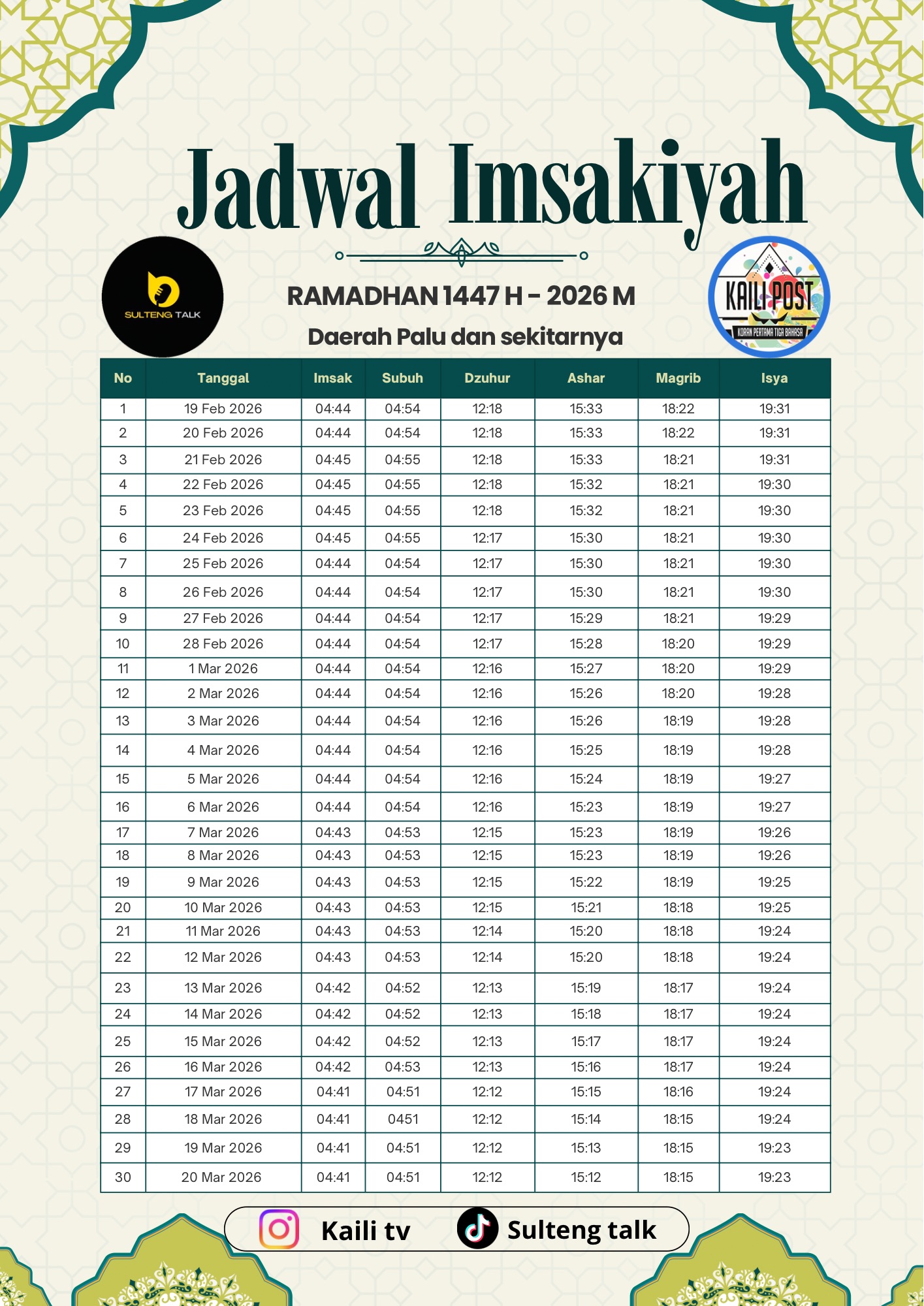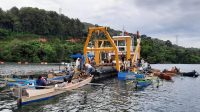Poso,- IT IS NOT Easy to ascertain the first person to initiate the spread of Islam in Tana Poso. In addition to the method of spreading originated from traditional ways while trading, the driving figure was concentrated in certain areas. There were Tampo Banda in Pandiri-Lage area, Andi Baso Ali in Mapane-Poso Pesisir, and Andi Ahmad Lacukku in Tojo region, all three leaving oral stories from a number of informants and historical facts in the form of descendants, houses, mosques, and cemeteries.
However, to ensure who comes first, until now still be an interesting study, as well as challenging. It’s nothing, both Tampo Banda, Baso Ali, and Andi Ahmad Lacukku (Pilewiti), each of them has different methods with different challenges, making it difficult to quantitatively measure. However, apart from a number of challenges each, the most moderate approach to tracking them, is to try to unravel genealogically. Now based on the mapping in lineage, we can unravel the beginning of their presence and their work in Tana Poso.
A number of oral sources said Tampo Banda was one of the Muslim leaders who surrounded Lembantana Poso, and eventually settled in Kadombuku, an old village located south of Watuawu village, Lag district, or more precisely Kalingua hill. This old village is only about 200 meters from Posos-Tentena (Pandiri Village). That’s where Tampo Banda began melakoni his life in the middle of the population who is certainly still adheres to animism at that time. He married one of the girls and lowered the generation that until now is still identified.
According to Maks Tadjongga, Tampo Banda is expected to arrive in Poso around the 1720s, because if traceable lineage to date, Tampo Banda has lowered seven descendants in Poso. “We are, so including the fifth generation, we are the grandchildren of the 7th generation,” said Ngkai Maks Tadjongga, who believes that Tampo Banda is Muslim, although his descendants today are many who are Christians. “I’ve been there, so the deceased tomb is indeed tomb-shaped and facing north just like other Islamic cemeteries, and until now his grave is still there. So our ancestors are actually Bugis Mandar people of Islam “, said Maks Tadjongga, in a conversation with Kaili Post.
The same thing was delivered by Gustaf Tadjongga. The former head of Lombugia urban village, estimates the presence of Tampo Banda much earlier than Baso Ali in Poso Pesisir. Because if based on search History, Baso Ali from Cilellang, Luwu District, is estimated to be present in Poso, around the 1800s.
The same thing was expressed by Syarifudin Odjobolo, the fourth generation of Baso Ali, knowing that Baso Ali still had time to meet with Albert Christian Kruyt at the end of his age before he passed on to rakhmatullah in Mapane urban village. “It is quite possible that Tampo Banda first, because Baso Ali still leaves a story of tolerance with Kruyt in Mapane. That’s what I know, although there are still some who judge that Kruyt only had time to meet with Odjobolo, son of the assistant of Baso Ali “, said Udin Odjobolo, during a talk with Kaili Post in Baso Ali cemetery, two days ago.
Kruyt himself was known to arrive first in Mapane in 1892, adrift about 172 years from the presence of Tampo Banda in Pandiri. From this simple calculation, it then suggests that Tampo Banda first arrived in Poso rather than Baso Ali, because Tampo Banda was thought to be present in Poso, around 1720.
That’s how writers search, trying to reconcile the story of the two charismatic figures, giving guidance to ascertain who was the first one present, Tampo Banda or Baso Ali?. And in hereditary discovery, Tampo Banda was the first Muslim figure to be present in Poso, although admittedly Tampo Banda’s influence in performing his dakwah mission seemed faint, compared to Baso Ali. And may not be the massive Islamization done by Tampo Banda when it was because of the still closed of the indigenous population to the religion of the monotheism (monotheism), let alone the culture of headhunting and the tradition of sedentary living when it was still a common way of life for the Poso people, making it difficult Tampo Banda to organize.
Tampo Banda is known to bring down a boy named Pettalore (Tamabuku). From this only child then lower 4 children, each named Gaweda (Papa I Malempo / Tadjongga), Tampengara (Bungasawa), Ntewe (Grandma Gompi), Ule (Tancoigi / Papa I Ndori). Interestingly, from the four children of Pettalore as the successor to the descendants of Tampo Banda, there are Christians and some are Muslim. Again, this phenomenon reiterates that, in fact, Muslims and Christians in Poso Tana still have blood ties.
Unhas Anthropology Doctoral Candidate, Asyer Tandapai, assesses the difference of religion for the descendants of Tampo Banda, in fact not apart from the pattern of spreading of Islam and Christianity in different Poso tana. “If we try to observe the pattern of spreading the two religions of the heavens (Islam and Christians), Christians are developing in the mountains, while Islam is developing in Poso Pesisir region,” said Unhas Anthropology doctoral candidate, Asyer Tandapai.
“So it seems there is a preaching mission from Tampo Banda to Papa I Malempo, because as far as I know Ngkai Papa I Malempo own adherents of animism, so our families who live in the coastal areas of Tojo and Sayo, embraced Islam because it is the da’wah of Islam took place there, We who are Muslims, follow the mission of evangelism AC. Kruyt, so it’s right about the depe of the story so “, added Gustaf, reassuringly.
An unpublished written reference says, the descendants of Tampo Banda who are Muslims are mostly from the lineage of a boy named Tampengara (Bungasawa) and a daughter named Ntewe who marries Palenga. Both the Bungasawa and Palenga clans, both of which are hitherto embraced Islam with the current spreading areas in Sayo, Poso Town South, Poso Pesisir brothers, including in Tawaeli, Palu.
There is also Andi Ahmad Lacukku from Bone, or better known as Pilewiti, as the bearer of Islamic treatises in the Tojo region, has not been extensively covered in this narrative. In addition to the limited reference, Tojo region has been administratively included in the current Tojo Unauna Regency. However, the presence of Pilewiti in Tojo is known to degrade the generation of Colombo, then descend to Tanjung Bulu, as it is widely used as a last name, by its descendants. Pilewiti, is known to have died and was buried in Tojo village, Touna district, 85 km east of Poso City. **
REPORTER/EDITOR: DARWIS WARU










